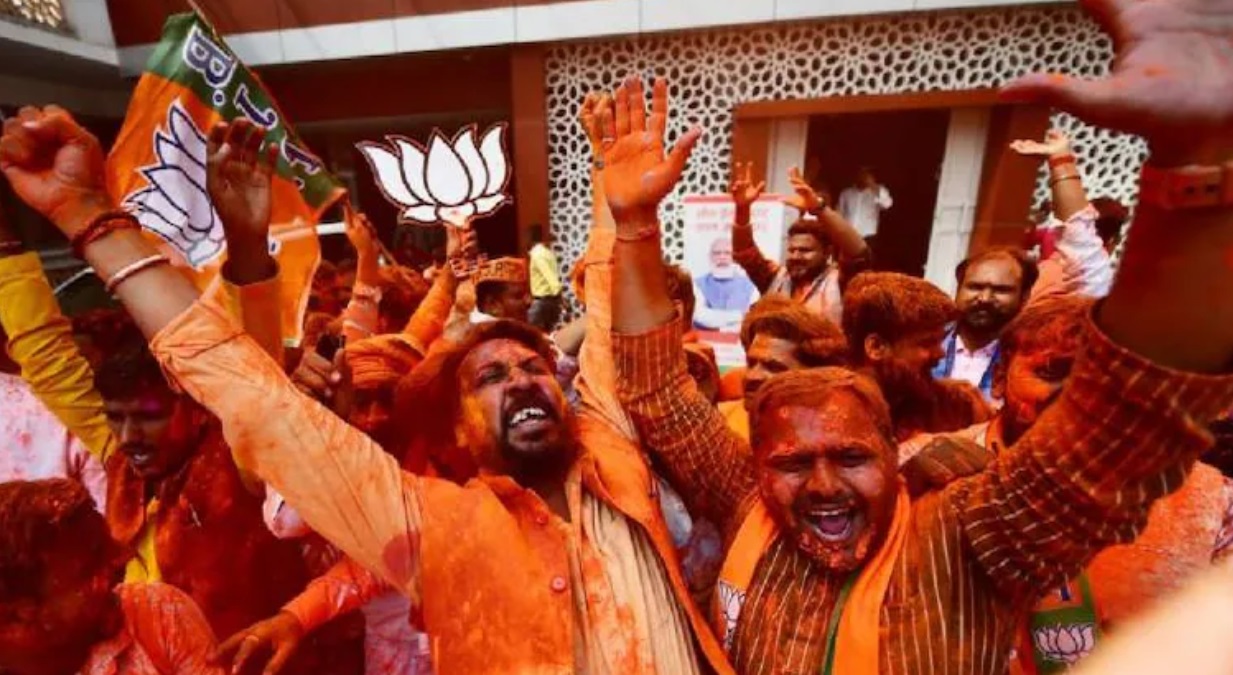
With North-Eastern victory the 2024 is no more a mystery
The results of the first political test of the year held no surprises. The BJP-led combine retained Tripura and Nagaland, while the saffron party will share power in Meghalaya with its old ally NPP. In contrast, Congress proved to be the biggest loser. This reversal of fortunes is noteworthy as Congress was once the dominant party in the northeastern states, while the BJP had minimal presence. The BJP is now ruling seven out of eight states in the region.
The BJP’s victory is a stamp of approval on PM Narendra Modi’s ‘Act East’ policy. The “seven sisters of the northeast” have rewarded the Prime Minister’s persistent focus on developing the region. He has taken several steps to bring these states closer to the national psyche and emphasized in his post-victory speech that the northeast region is no longer far from Delhi, the country’s heart.
PM Modi’s rallies and road shows before the elections attracted significant crowds. Despite accusations of misuse of central agencies for political gain by the opposition, the victory is the outcome of the BJP’s hard groundwork in the northeastern states under the leadership of PM Modi and Union Home Minister Amit Shah. The party has successfully captured the imagination of common people in these states. Its performance in Christian-dominated Meghalaya and Nagaland has dispelled the impression that it is only a Hindutva party with a core base restricted to the Hindi heartland.
It has been proven once again that this new BJP is an unassailable political force and remains in election mode all year round. An example of the party’s astute political strategy was the timely change of guard in Tripura, as was earlier done in Uttarakhand. The election result showed that the ploy was a masterstroke. There is little doubt that the BJP now enjoys the same status in this region as the Congress once did.
For Congress, it was the same sordid saga that they have become accustomed to. The alliance with the left parties could only increase its tally by two seats, and the party could not even open its account in Nagaland. It was restricted to just five seats in Meghalaya, a loss of 16 seats from the previous state elections.
What lessons can the opposition learn from these elections? The Congress party is positioning itself as a fulcrum of the opposition alliance before the 2024 Lok Sabha polls. However, the strong showing by parties like Tipra Motha and Trinamool Congress in these elections indicates the resurgence of regional satraps that could challenge the grand old party’s pole position in the opposition camp.
The general understanding in political circles is that no serious challenge to the NDA can hold without incorporating Congress. However, this may not hold true for long as the party may soon find it difficult to find allies. The BJP’s attempts at pushing it out of the national political discourse are partly responsible for this predicament. Regional players hold sway in large parts of India, especially in the eastern and southern states. In 2019, regional parties won all 25 Lok Sabha seats in Andhra Pradesh despite a strong Modi wave. Likewise, DMK managed to win 37 out of 39 seats. The BJP’s best efforts have failed to dislodge Mamata’s grip on West Bengal. In comparison, the Congress party is only a shadow of its past in important states like Uttar Pradesh and Bihar. Allying with Congress yields no dividends to these parties in these states. In any case, most of them like to keep their cards close to their chest until the results are out and often prioritize vested regional, party, or individual interests over ideological considerations. This makes it a “winner takes all” situation in Indian politics. Even the Congress’ past record of treating allies does not inspire much confidence compared to the BJP’s history of honouring political relations.
The upcoming Assembly elections this year will have a bearing on the alliance politics in the run-up to the next year’s General Elections. Congress and BJP are in a direct contest in Karnataka, Rajasthan, Madhya Pradesh, and Chhattisgarh, and the outcome in these states would largely determine Congress’ bargaining power ahead of the big battle in 2024. It will need to at least give a tough fight to the BJP to attract allies with ‘similar ideologies’. Even so-called secular regional parties are negotiating at least 350 Lok Sabha seats from the Congress at the moment.
The Congress leadership is not oblivious to the ground reality. It has acknowledged the need for alliances during the recently concluded Raipur Summit. The party realizes it lacks the strength to single-handedly meet BJP’s challenge. It was evident in Congress President Mallikarjun Kharge’s statement on DMK President’s birthday that his party was not claiming the PM’s post in any future alliance. Several opposition leaders like Farooq Abdullah, Akhilesh Yadav, and Tejaswi Yadav shared the stage with Kharge and advocated opposition unity. It remains to be seen whether this bonhomie will materialize on the ground.
This situation leaves Congress with only one solution; to leave behind the current setback and tighten its belt for the upcoming electoral battles. A good performance in them could help it win valuable allies for 2024. The Assembly elections in nine states are being considered as a semifinal to the mega battle next year. The BJP has already taken an edge by hoisting its flag in three states.


















